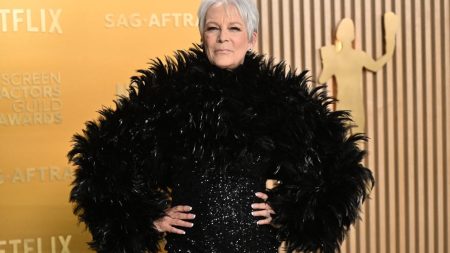The Tragic Loss of Kim Sae-ron Sparks National Mourning and Calls for Change
The sudden death of South Korean actor Kim Sae-ron has sent shockwaves across the nation, triggering an outpouring of grief and raising urgent questions about the treatment of celebrities in the public eye. Kim, who was just 24 years old, was discovered unresponsive by a friend at her home in Seoul on Sunday. Authorities have confirmed that there is no suspicion of foul play, and no suicide note was found. The National Police Agency is currently investigating the circumstances surrounding her death. Kim was a talented actor who began her career as a child star and had risen to prominence through her compelling performances in South Korean films and television shows. Her passing has not only devastated her fans but has also sparked a broader conversation about the harsh treatment of celebrities in South Korea, particularly on social media and in the media landscape.
Kim’s career was marked by early success. She began acting at the age of 9, making her debut in the 2009 film A Brand New Life, which followed a young girl’s struggles in an orphanage. Her breakout role came in 2010 with the crime thriller The Man from Nowhere, a massive box office hit that earned her widespread acclaim and a domestic acting award. Over the years, she continued to impress audiences with her versatility, appearing in a variety of films and TV shows that solidified her status as one of South Korea’s brightest young stars. However, her career took a significant hit in 2022 after she was involved in a drunk driving incident, which led to public backlash and a court-imposed fine. Despite her efforts to continue acting, Kim found herself struggling to secure roles, and the constant scrutiny and negative coverage in the media only exacerbated her challenges.
The Backlash and Struggles Kim Faced in the Spotlight
Kim’s journey in the entertainment industry was not without its challenges, particularly in the years leading up to her death. After the 2022 drunk driving incident, she became a target of intense public scrutiny and media backlash. Newspapers and online platforms relentlessly covered her personal life, often with harsh and unforgiving tone. Even mundane activities, such as socializing with friends or expressing frustration over her lack of work, were blown out of proportion and presented as evidence of her supposed irresponsibility. The constant barrage of negative attention took a toll on her mental health and career prospects, as she found it increasingly difficult to land roles in films and TV shows.
The harsh treatment of celebrities in South Korea, especially women, is a well-documented issue. The cultural expectation of perfection, coupled with the relentless scrutiny of the public and the media, creates an environment where even minor missteps can lead to severe consequences. For Kim, the aftermath of her drunk driving incident became a defining moment in her career, overshadowing her earlier achievements and reducing her to a cautionary tale in the eyes of the media. Despite her attempts to move forward, including taking on smaller, independent projects, she was repeatedly reminded of her past mistakes. Even something as simple as smiling during a film shoot was criticized, highlighting the relentless and unforgiving nature of the public eye.
The Aftermath of Her Death and Calls for Change
Kim’s death has reignited a national conversation about the toxic culture surrounding celebrities in South Korea. In the days following her passing, major newspapers and online platforms published editorials and opinion pieces criticizing the harsh treatment of celebrities and calling for systemic change. Many drew parallels to other high-profile deaths in the entertainment industry, including the 2019 deaths of K-Pop singers Seol-li and Goo Hara, as well as the 2023 death of Squid Game actor Lee Sun-kyun. These cases have underscored the broader issue of mental health and the pressures faced by public figures in South Korea.
The public’s reaction to Kim’s death has been a mix of grief and outrage, with many taking to social media to demand greater accountability from the media and the public. Fans and supporters have highlighted the need for a more compassionate approach to celebrity culture, one that acknowledges the humanity of those in the spotlight. The outpouring of condolences has also shed light on the importance of mental health awareness and the need for stronger support systems for individuals struggling with the pressures of fame.
Media and Public Responsibility in the Wake of Tragedy
In the wake of Kim’s death, the role of the media in perpetuating harmful narratives has come under scrutiny. Newspapers and online platforms have faced criticism for their sensational and provocative reporting, which often prioritizes clicks and views over sensitivity and respect for individuals. The Hankook Ilbo newspaper, for instance, published an editorial blasting media outlets for their exploitation of Kim’s struggles even after her death, using attention-grabbing headlines that highlighted her past mistakes. This kind of reporting, the editorial argued, reflects a broader problem in the media landscape, where the line between journalism and gossip is often blurred.
The Citizens’ Coalition for Democratic Media, a watchdog group, has also weighed in on the issue, criticizing news organizations for blaming social media for the toxic culture while ignoring their own role in perpetuating it. The group argues that the media’s “sensational and provocative reporting” contributes to the same culture of harassment and scrutiny that ultimately takes a toll on celebrities like Kim. By failing to take responsibility for their own actions, the media perpetuates a cycle of exploitation and harm.
Remembering Kim Sae-ron: A Legacy Beyond Tragedy
Kim Sae-ron’s death is a tragic reminder of the fragility of life and the societal pressures that can accompany fame. Her journey from a child star to a struggling adult actor serves as a microcosm of the challenges faced by many in the entertainment industry. While her career was marked by both highs and lows, it is her resilience and talent that should define her legacy.
As the nation continues to grapple with the aftermath of her passing, it is hoped that her death will serve as a catalyst for change. By addressing the systemic issues that contribute to the exploitation and harassment of celebrities, South Korea can take steps toward creating a more compassionate and supportive environment for those in the public eye. In doing so, the country can honor Kim’s memory by ensuring that no one else has to endure the same struggles she faced.
In the end, Kim Sae-ron’s story is one of talent, resilience, and the enduring impact of societal pressures. As fans and supporters continue to mourn her loss, they also hope that her death will not be in vain. By advocating for change and promoting greater empathy and understanding, the public can play a role in creating a culture where celebrities are treated with the dignity and respect they deserve.















